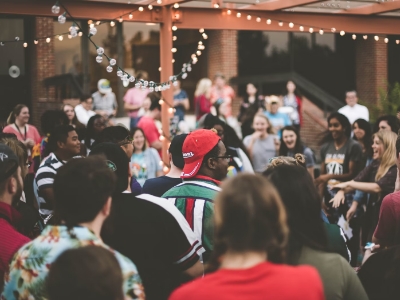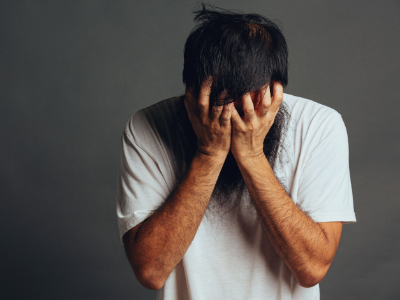What Causes Social Anxiety?

Social anxiety is also known as social phobia. It affects about 5.3 million people in the United States. The average age it begins is between ages 11 and 19 or the teenage years. In this condition, the fear is limited to one or two particular situations, like speaking in public or initiating a conversation. Others are very anxious and afraid of any social situation. The tough part is being able to ask for help.

People who have this condition may have trouble with any of the following:
- Talking to strangers
- Eating in front of other people
- Going to school or work
- Speaking in public
- Going to parties
- Dating
- Making eye contact
- Starting conversations
- Entering rooms
- Using public restrooms
What are the Causes of Social Anxiety Disorder?
- Genetic traits. You’re more likely to develop social anxiety disorder if your biological parents or siblings have the condition. However, it isn’t entirely clear how much of this may be due to genetics and how much is due to learned behavior.
- Negative experiences. There is a greater risk of social anxiety disorder for children who have experienced teasing, bullying, rejection, ridicule, or humiliation. In addition, other negative events in life, such as family conflict, trauma, or abuse, may be associated with this disorder.
- Having a condition that draws attention. Social anxiety disorder can be triggered by facial disfigurement, stuttering, or tremors caused by Parkinson’s disease.
- Brain structure. A structure in the brain may play a role in controlling the fear response. It may cause other people to have a heightened fear response, causing increased anxiety in social situations.
- Environment. It can also be a learned trait as some people may develop significant anxiety after an unpleasant or embarrassing social situation.

Symptoms of Social Anxiety
- Trembling
- Sweating
- Upset stomach or nausea
- Trouble catching your breath
- Fear of situations in which you may be judged negatively
- Worry about embarrassing or humiliating yourself
- Avoidance doing things or speaking to people
- Blushing
- Fast heartbeat
- Dizziness or lightheadedness
- Intense fear of interacting or talking with strangers
- Feeling that your mind has gone blank
- Muscle tension
- Avoidance of situations where you might be the center of attention
- Anxiety in expectation of a feared activity or event
- Intense fear or anxiety during social situations
- Fear that others will notice that you look anxious
Does Social Anxiety Affect Your Life?
It prevents you from living your life as you avoid situations that most people consider normal. You might even have a hard time understanding how others can handle them so easily. It also affects your personal relationships. It leads to low self-esteem, negative thoughts, low social skills, depression, and sensitivity to criticism.
If this condition keeps you from doing things you want or need to do, or from making or keeping friends, you may need treatment. Talk about your fears and worries with a doctor or therapist who has experience treating such conditions.
Why Should You Talk to a Professional?
Note that getting help from doctors does not mean that you are not normal. Your feelings are valid and you are not alone. Many people also experience the condition and experts can help you get through it. Talk to a professional to help you find solutions. Talk openly with your doctor about treatment to avoid depression, drug or alcohol problems, school or work problems, and a poor quality of life.
Treatment for Social Anxiety
The treatment depends on what causes the condition. A combination of medication and therapy would be a great help for your recovery. Psychotherapy improves symptoms and helps you learn how to recognize and change negative thoughts about yourself and develop skills to help you gain confidence in social situations.
Your doctor may also prescribe medcations such as anti anxiety, antidepressants, and beta blockers. Though several types of medications are available, selective serotonin reuptake inhibitors are often the first type of drug tried for persistent symptoms of social anxiety. To reduce the side effects, you may be instructed to start with a lower dosage.



